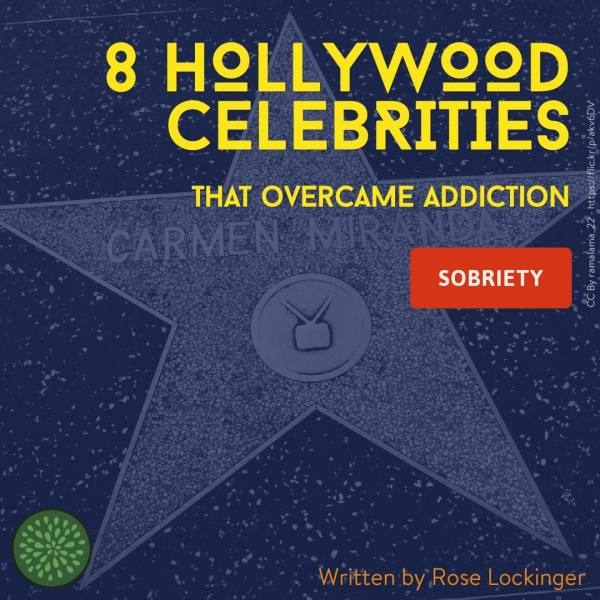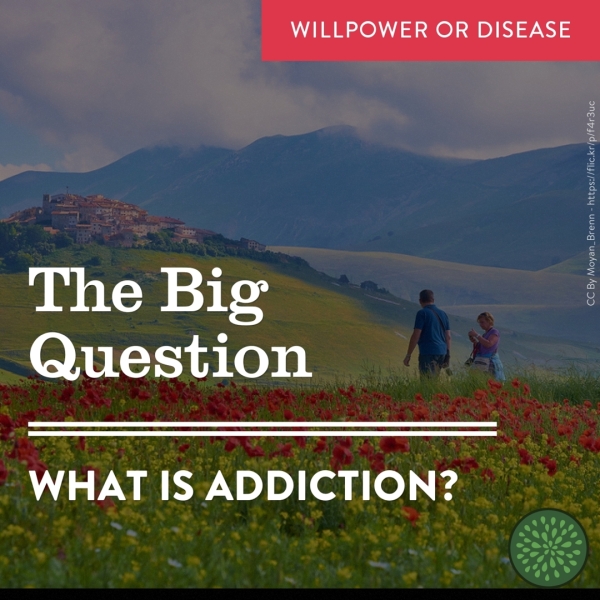The Big Question about Addiction – Rose Lockinger
This is somewhat of a “loaded” question, isn’t it? Is addiction a medical condition? A mental illness? A behavior? What causes it? Is it genetics, environment or choice? If you ask ten different people, you’ll likely get ten different answers, and even medical and mental health professionals don’t always agree on what addiction is, what causes it and what drug treatment is available.
So let’s dig in with what we know, what we can theorize, and what various professionals and organizations have to say about it. One of the biggest arguments people have about addiction is whether it should be classified as a disease.
Is Addiction A Disease? Why Or Why Not?
This is a hotly debated topic. Some people don’t buy the theory that addiction is a disease, however, others argue that it is. It does meet the criteria for a disease: It is chronic, relapsing, progressive and deadly. While there are environmental factors that contribute to the disease of addiction, there is strong evidence that genetics are also involved. If you think of a disease like cancer or diabetes, you can see the similarities unlike those diseases addiction carries a strong negative stigma. There are genetic components to the disease,
but there are also environmental and behavioral factors that can contribute to it.
But, Isn’t Addiction Just a Behavior?

It can be viewed that way, of course. People do choose to pick up and use. However, most people aren’t looking at the whole picture. First off, addiction isn’t entirely about drugs and alcohol. Yes, that is what people think of when they hear the word, but drugs and alcohol are really only a symptom, and are also a common manifestation of the disease, but certainly not the only manifestation.
Other Forms Of Addiction
While drugs and alcohol are a common focus of the addicted person, they are not the only way addiction affects people’s lives. Other common addictions include:
Food
Sex
Gambling
Exercise
Spending
Working
Addictions to things like spending money, gambling or sex are also called process addictions, or behavioral addictions. It is possible for a person to be a full-blown addict who doesn’t touch drugs or alcohol, and is more common than you think.
What Is Happening In The Addicted Brain?
In order to gain a better understanding of addiction, it’s important to understand what is happening in the brain when drugs or alcohol are consumed, as well as other stimuli, such as sex, gambling, shopping and exercise.
Of course, results are going to vary, depending on many factors. Obviously, different drugs behave in different ways, but they all have one thing in common: Dopamine.
Dopamine is our “feel good” chemical and is a part of our brain’s reward system. Dopamine is released during life’s normal activities. However, dopamine is not limited to pleasure or pleasure seeking. It’s also a factor in motivation, movement and cognition. The system of neurochemicals that our brains depend on to keep us balanced, satisfied and able to carry out the normal aspects of life can go awry. Sometimes, this is an internal issue, sometimes, it’s a result of outside factors, such as drug use.
Not only that, but some evidence suggests that dopamine release isn’t just limited to positive stimuli, but negative stimuli as well. This makes sense from the standpoint of addiction. Active addiction causes a host of negative side effects, such as guilt, shame, unpleasant consequences and negative attention. In reality, the dopamine-seeking cycle may continue being perpetuated not in spite of these consequences, but also because of them.
The “high” that you get from using drugs or alcohol releases dopamine and that reinforces the behavior. Your brain becomes conditioned to expect that same feeling of elation and well-being when the drug is consumed. That also triggers obsessive and compulsive behavior and the brain creates defense mechanisms to ensure that the budding addiction is protected. A common defense mechanism is denial.

Obsession And Compulsion
Becoming addicted to a substance or activity means that you have an obsessive and compulsive drive to obtain and use the substance or activity. It feels uncontrollable, and in some ways it is. Most often, the addiction cycle cannot be broken without intervention.
Addiction And Mental Illness
Addiction often goes hand in hand with mental illness. Conditions such as depression, anxiety, suicidality, psychosis and other symptoms may precede drug use, or may be caused or worsened by drug use. It’s often thought that mentally ill individuals use drugs and alcohol to self-medicate and get relief from their symptoms.
Understanding Addiction
People who have never been addicted to anything find it difficult to understand. On the surface, it may simply appear that the person has “no willpower” or simply doesn’t care about themselves or anyone else. It is truly a baffling disease, and it isn’t easy to treat. For the helpless family member or loved one, it’s hard to understand why they just don’t quit, especially if they are experiencing severe consequences.
Drug and alcohol addiction, in particular, carries heavy risks, such as illness, overdose, and death. Incarceration, job loss, financial distress and the loss of family members, including children are common. How can a person let this happen? The reality is that no one wants to be an addict. It is a disease that devastates and takes lives each and every day.
Help is available, fortunately. This is true for family and loved ones of addicts, too. Drug treatment, twelve step programs, and programs designed for friends and family can provide solutions and support. Education is available, and knowledge is power.

Rose Lockinger is passionate member of the recovery community. A rebel who found her cause, she uses blogging and social media to raise the awareness about the disease of addiction. She has visited all over North and South America. Single mom to two beautiful children she has learned parenting is without a doubt the most rewarding job in the world. Currently the Outreach Director at Stodzy Internet Marketing.
